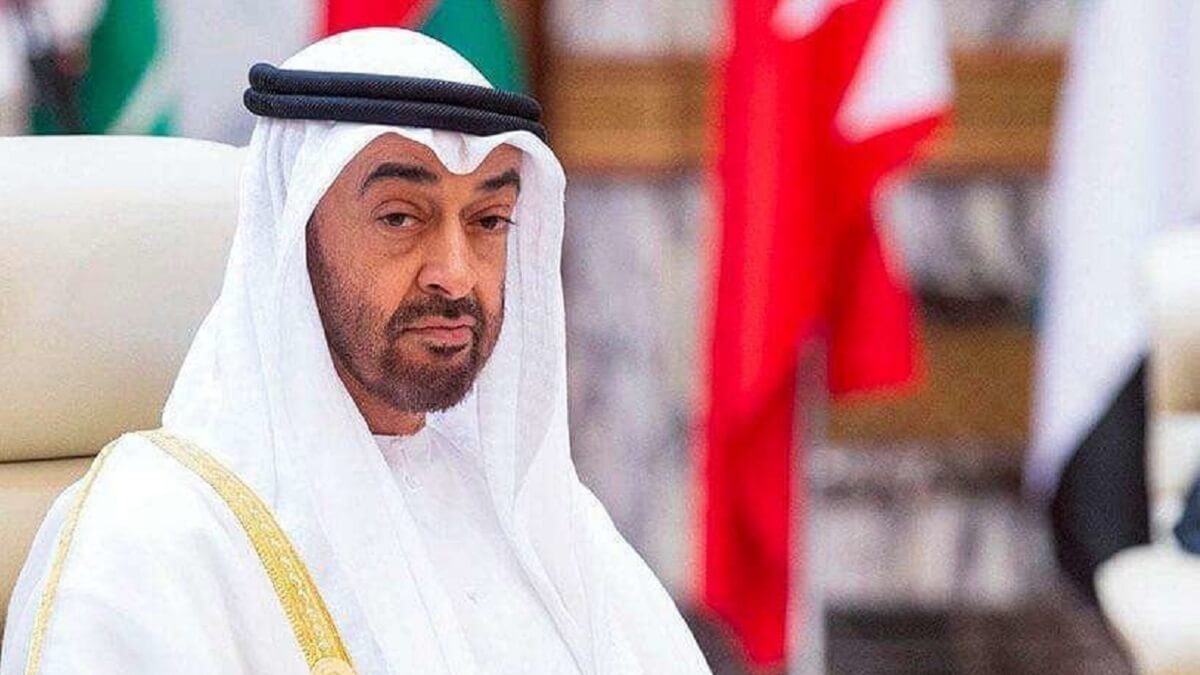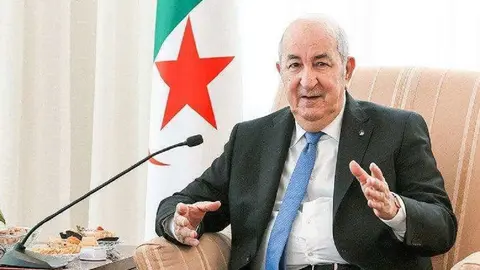Torch-bearing between Algiers and Dubai?

Less than an hour after publication, the information was removed from the website of this government-supported media outlet, whose owner, Anis Rahmani, whose real name is Mohammed Meguedem, is in prison serving a 10-year sentence for corruption and illicit enrichment. But the short time it took for this information to appear was enough for social networks to take hold of it and spread it far and wide.
Things look serious and grave. A strong reaction was expected against the En-Nahar website, whose newspaper has ceased publication since Tebboune came to power. Anis Rahmani, its owner, had participated in the plot led by General Wassini Bouazza, then all-powerful head of the General Directorate of Internal Security, who had manoeuvred against Tebboune's appointment as Algerian head of state. Major General Bouazza was demoted to the rank of cavalryman and sentenced to 16 years in prison, while the head of the En-Nahar group languished in a prison in the south of the country, some 800 km from Algiers.
The day after this information was published, the Algerian authorities said nothing more on the subject. A late-night denial by the Ministry of Foreign Affairs, followed by the dismissal of Mohammed Bouslimani, the Minister of Communication, seemed sufficient. There was no need to open an investigation, which could well provoke a confrontation with devastating consequences between Tebboune and Chengriha. It is clear that it is the army chief of staff, who controls the secret services, who is behind this "incident".
The En-Nahar media, known as the media relay of the Algerian secret services, would never have allowed itself to publish such serious information if it did not come from a source in a position to protect them.

The daily El-Khabar takes over from En-Nahar
The same is true of the Arabic-language daily El-Khabar, which has joined the bandwagon by publishing, in its edition of Thursday 27 July, a scathing and unusually violent article against the United Arab Emirates, under the headline "Abu Dhabi, the capital of chaos". The article mentions in particular that "Emirati officials have provided Morocco with a system of espionage against Algeria. Emirati pressure on Mauritania to normalise relations with Israel. Tunisia was encouraged to break off relations with Algeria in exchange for substantial financial aid from the Emirates. Attempt to flood Algeria with 2 million units of psychotropic drugs from Libya".
The daily El-Khabar tells us that "well-informed sources" are behind this plot. In other words, the security services are communicating information that should have been the subject of a report to the head of state for him to take appropriate action in such a situation. At the very least, the Foreign Minister should have summoned the Emirati ambassador in Algiers and asked him for explanations. The information contained in this article is more than enough to provoke an urgent rupture of diplomatic relations between the two countries. For much less, on 24 August 2021, Algiers broke off diplomatic relations with Rabat before deciding, a month later, to close its airspace to Moroccan civilian and military aviation following a decision taken at a meeting of the High Security Council on 22 September 2023.

To date, however, the Algerian authorities have never been able to provide the slightest evidence to justify these decisions, which are poisoning the existence of the two brotherly peoples, who have been suffering from the closure of their land borders since 1994.
So far, El-Khabar's article has not elicited any reaction from either Algeria or the UAE. It is true that it was published while President Tebboune was in Germany for treatment. But upon his return, no decision was taken against either the newspaper or the UAE.
Once again, we suspect that the Algerian secret services are behind this manoeuvre. And when we say secret services, we mean General Saïd Chengriha, the army chief of staff and the country's strongman.

It is common knowledge that relations between Algeria and Dubai are not very good. Proof of this was the refusal of Sheikh Zayed, president of the UAE, to meet Tebboune or shake his hand at the 26th St Petersburg International Economic Forum, held from 14 to 17 June 2023. Despite Tebboune's attempt to encourage Putin to organise a tripartite meeting, Emir Zayed Al-Nahyane refused to meet with the Algerian head of state. This was unprecedented in the history of Algeria's international relations, especially with Arab countries.
An angry Tebboune, for his part, made the mistake of not offering condolences to the Emirati state for the death of His Highness Sheikh Saeed Ben Zayed Al-Nahyane, representative of the ruler of Abu Dhabi and brother of the President of the United Arab Emirates.
However, Algiers would never dare openly declare its dispute with the UAE and would never dream of antagonising it. Its capacity to cause trouble is so strong that the Algerian regime risks finding itself even more isolated on the Arab stage. This does not help the man who continues to trumpet the fact that Algerian diplomacy has regained its colours and brought Algeria back into the line of respectable states. This remains to be proven when Algeria is seen as a destabilising force in the region, given its stormy relations with Rabat, Madrid, Paris and Dubai. Capitals that count.











